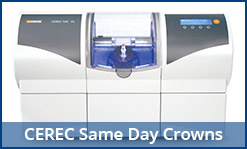Tooth loss can happen for any number of reasons. Whether you’ve lost your natural teeth or had them intentionally removed for medical reasons, replacing them will be of paramount importance. Depending on the amount of teeth that are missing there are various options available to you and implants could be the solution. One of the most common questions patients ask when considering their options relates to the practicality of relying on implants to replace large numbers of teeth. While most people are familiar with the concept of having one or two implants surgically installed, many are unaware that all of their teeth can be replaced with implants.
Dentures vs. Implants
Patients who have suffered a significant amount of tooth loss must consult with their dentist to decide if implants are the way to go or if another solution such as dentures is the better option. Dentures are a temporary alternative that can be removed from the mouth daily. Since they are not anchored to the bone, dentures may move around, become dislodged and cause discomfort to the gums. Implants, on the other hand, are designed to be permanent fixtures in the mouth and look, feel, and behave more like normal teeth.
Choosing Implants
Patients who opt to go with implants to replace their teeth must be considered a good candidate for the procedure. In order to determine if the surgery will be a success your dentist will conduct a full examination first. That may include X-rays to assess if you have proper bone mass to support anchoring for the implants and checking the gums to see if they are healthy enough to heal properly after the procedure takes place. Patients at high risk for gum diseases may be denied the surgical procedure, as the implants won’t heal correctly.
Replacing All Teeth
If you opt for implants to replace all of the teeth in your mouth, special implant-supported bridges or dentures will need to be implanted in your mouth. Posts are anchored to the jaw just the same as with singular implants. But unlike the standard versions of those appliances, these versions are rooted to the jaw for permanent placement. This alternative also preserves the bone in your jaw, preventing it from erosion that could result from traditional dentures. Bone erosion can occur at the areas where there is no tooth rooted to the jaw and it may start to resorb in those locations.











